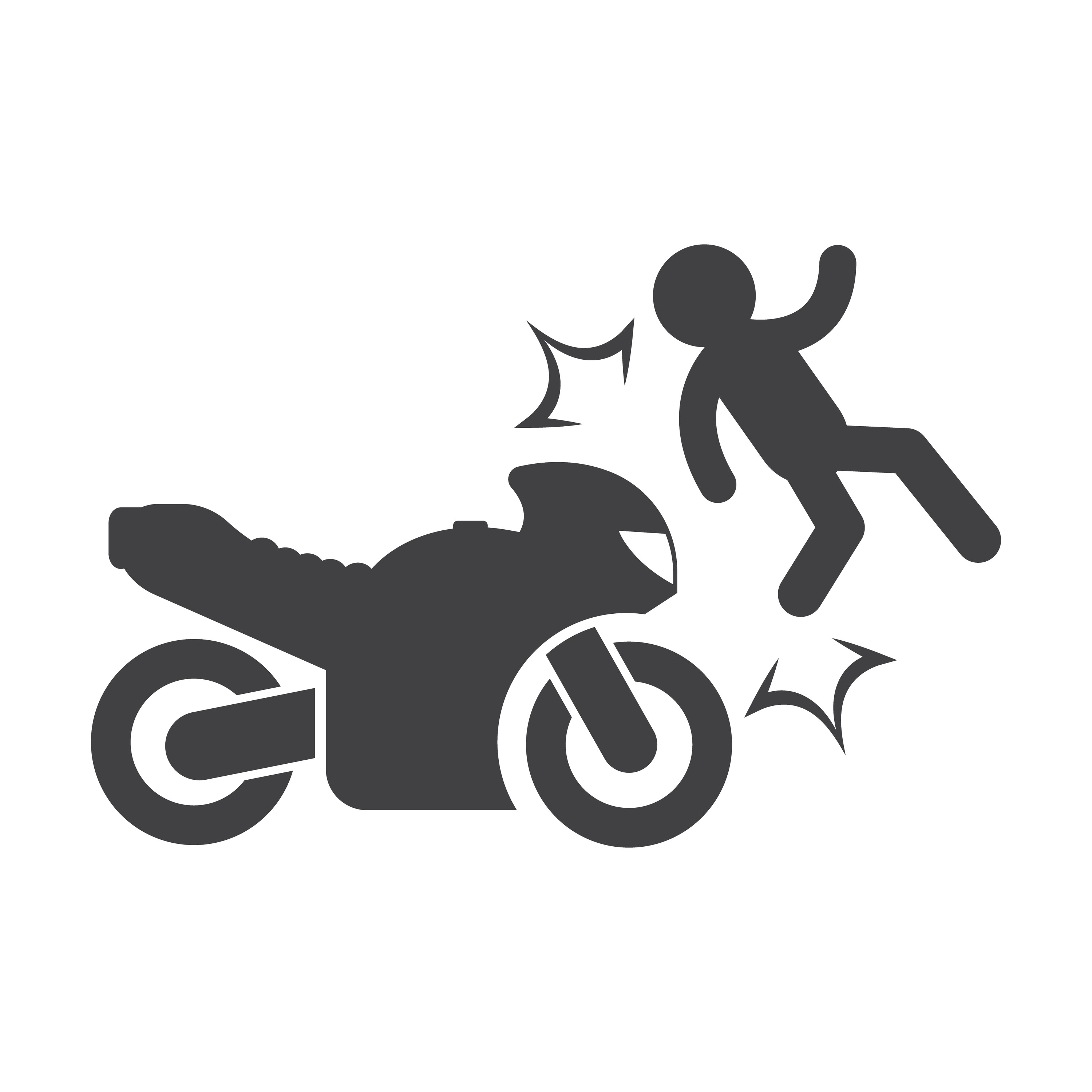Health Disease
Your body is the most priceless possession. After all, you have to dwell in it! So take care of it with a right Health Insurance Plan.
What is Cough?
A cough is a condition that is also known as tussis. This is a voluntary or an involuntary act clearing the throat as well as breathing passage of the mucus, foreign particles, irritants, microbes, fluids. In short, it is a rapid removal of air from the lungs. A cough which is persistent and that lasts for more than eight weeks is known as a chronic cough.
Usually, cough episodes clears up, or improves significantly within two weeks. But, in case you have instances wherein you cough up blood or say you have a “barking” cough, then immediately seek medical attention. Besides, if you feel that you don’t find any improvement in your cough even after a few weeks, it is important to see a doctor.
Causes of Cough
Mentioned below are some of the common causes of cough which are both temporary and permanent.
Clearing the throat
Cough is a condition when your airways are clogged with irritants, mucus or foreign particles like dust, smoke, etc. Cough is a usual way of clearing the throat. It is a reflex reaction attempting to clear off the particles to make breathing easier.
This type of coughing doesn’t occur too frequently. However, the cough will definitely increase due to a rise in exposure to smoke or other irritants such as smoke.
Viruses and bacteria
Respiratory tract infection namely flu and cold are the most common causes of a cough. Usually, these infections are a result of a virus and would last from a few days to a week. It may take a couple of days to clear off the infections that are caused by the flu. In some cases, there might be a requirement of antibiotics too.
Smoking
Another main cause of cough is smoking. This is also a chronic condition that usually occurs with a distinctive sound also called as “smoker’s cough.”
Asthma
Asthma is a very common cause of coughing in young children. This condition involves wheezing. Therefore, one finds it easier to identify the same. Asthma exacerbations should ideally receive treatment with the help of an inhaler. Children ones they get older, can grow out of asthma.
Medicines
Certain medications such as Angiotensin- converting enzyme (ACE) inhibitors, Zestril (lisinopril) and Vasotec (enalapril) are some of the medications that may cause cough. Once the usage of these medication stop, the cough stops too.
Types of Cough
Mentioned below are some of the common types of cough:
- Wet cough
Also called as productive cough, this type of cough brings a lot of mucus. These are usually caused due to flu or cold. Here, your body pushes the mucus out of your respiratory system including your throat, airways, nose and lungs. - Dry cough
This type of cough doesn’t bring up the mucus. It triggers your cold reflux on the back of your throat. The dry cough are usually uncontrollable. This type of cough occurs due to irritation and inflammation inside your respiratory system. - Paroxysmal cough
This type of cough usually is intermittent attacks of uncontrollable coughing making people struggle to breath and result into vomiting. - Croup cough This type of cough usually affect children who are below 5 years old. Children find it difficult to breathe due to swelling resulting in narrowing of the airways. This leads in a barking sound.
- Drink a lot of water
- Stay hydrated always
- Head elevation with the help of extra pillows while sleeping.
- Usage of cough drops for soothing of throat.
- Gargling of hot salt water regularly for eradicating mucus and soothing of throat.
- Avoiding irritants that includes smoke and dust.
- Adding ginger as well as honey in hot tea for relieving your cough and clearing your airway.
- Using decongestant sprays for unblocking your nose and making breathing easier.
- The cough continues for more than three weeks
- Have 102°F fever
- Any fever that occurs in children who are 2 months old or younger than that
- If the child is unable to walk or talk due to breathlessness
- If your child turns pale or bluish
- If your child becomes dehydrated and is unable to swallow food
- If your child usually feel tired or fatigued
- If your child makes whooping sound during the violent coughing attacks
- If your child starts wheezing along with addition to coughing
- The cough has been persistent for more than eight weeks
- Coughs out blood
- Have 100.4°F (38°C) fever
- Feel too weak to walk or talk
- Severe dehydration
- Makes whooping sound during the violent coughing attacks
- Starts wheezing while coughing
- Suffers heartburn, or cough interfering with sleep
Treatment
What should you do in case your Cough worsens?
You may try some home remedies. Yet, if you find no results, it is advisable to see a doctor immediately.
What are the available Cough treatment options?
There are various cough treatment available depending on the cause. Self-care is one of the common cough treatment in healthy adults.
Self-treatment
Cough resulting from a virus can be treated in the mentioned ways since the same can’t be treated with the help of antibiotics:
Medical care
You will be prescribed oral antibiotics in case your cough is caused due to bacteria. These medications would be required to be taken for a week to get cured fully. Besides, expectorant cough syrups and/or cough suppressants may also be prescribed containing that codeine.
In case your doctor is unable to know the cough cause then you may be asked to go for additional tests. This may include chest X-ray for assessing whether your lungs are clear. You may also be ordered to carry on blood as well as skin tests in case of suspecting an allergic response. Mucus or phlegm may also be analyzed as cough signs tuberculosis or bacteria.
Your doctor may also request for an echocardiogram for ensuring proper functioning of your heart and that it isn’t causing the cough.
You may also be asked for a CT scan in some cases since CT scan may help in determining the root cause of the cough. You may also be referred to a gastrointestinal specialist or a pulmonary specialist in case of no results found in a CT scan.
Are there any natural or homemade remedies for Cough?
Mentioned below are some of the natural or homemade remedies for cough:
Honey — Honey helps in coating the throat that further results in less irritation as well as less coughing. Honey is also a demulcent.
Cough medications — you may also have some cough medications that help in associated symptoms like fever or a stuffy nose.
In case of children, experts suggest to consult a doctor before giving over-the-counter medications because codeine is an ingredient found in cough syrups or medicines that may be dangerous for small children.
Cough suppressants — the cough suppressants help in suppressing the cough reflex and therefore are normally prescribed only for a dry cough.
Expectorants — Expectorants also help in bringing up the mucus as well as other materials from the lungs, trachea and bronchi. You can buy these either online or over-the-counter.
When to see a doctor?
Usually, you may not need to visit a doctor for your cough. However, again it depends on the types of cough and the duration it lasted for. Besides, age and overall health of the person too are some of the important factors in knowing whether to visit a doctor for a cough or not. Generally, people who suffer with lungs diseases namely asthma and COPD, would require immediate medical attention than others.
It is important that you take your child suffering from cough if:
An adults suffering from cough should visit a doctor if they:








 support@greyfont.com
support@greyfont.com Call Us on (022) 4891 3051
Call Us on (022) 4891 3051